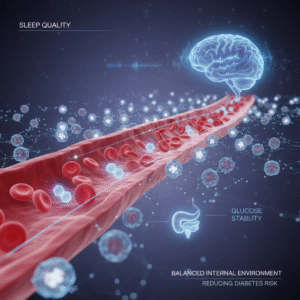Discover how teens starting school earlier face a higher risk of crashes. Learn the dangers of sleep-deprived driving and the push for later school start times for safety. Get informed from the experts.
The Study’s Key Findings
The research provides concrete evidence assessing the impact of circadian rhythm differences on driving safety. Researchers meticulously compared two nearby Virginia counties during two consecutive school years (2009-2011).
The two groups: One county high school classes 7:20 AM; the other, classes started at 8:45 AM. This provided a clear contrast group.
Who was studied: Teen drivers licensed for at least two years, controlling for age and driving experience. Data included from the Virginia Department of Motor Vehicles, offering a reliable source on crash statistics involving licensed teens.
The outcomes: The study found a stark difference. The group with the much earlier school start time (8:45 AM) had a dramatically higher rate of accidents. They were involved in over 520 accidents per school year, simply because of the time of day their classes began.
These findings didn’t exist in a vacuum. The study area’s location in the Eastern Time Zone meant many teens likely had extracurricular activities in the afternoon, further delaying bedtime. However, the core factor aligns with what sleep experts widely acknowledge: adolescent sleep needs.
Understanding Teen Sleep Needs
To grasp why these findings matter so much, we need to delve into teen sleep patterns. Unlike adults, teenagers naturally tend to stay up later and wake later due to their developing biological clocks and circadian rhythms.
Optimal sleep ages: The American Academy of Sleep Medicine recommends that teens need 10 hours of nightly sleep for peak functioning. They are well within their developmental stage of experiencing delayed sleep phase syndrome.
Current reality: Despite these needs, sleep experts point to CDC data, stating that most teens get far less. Around 68 percent of adolescents still manage eight hours or fewer on average school nights – leaving many sleep-deprived.
The consequence: Early school start times force teens to sacrifice crucial sleep hours, impairing their alertness, reaction times, and overall cognitive function (including driving skills). Sleep is medicine, not a luxury, especially for developing teens.
This natural circadian shift versus societal demands creates a challenging conflict for teens, potentially making unsafe sleep deprivation the norm rather than the exception.
Late School Start Times: A Potential Solution
The most effective way to combat these issues linked to early school start times might be surprisingly simple: delay the bell, research suggests. Advocates for higher start times point to numerous studies like this one showing the dangers of sleep-deprived teens behind the wheel.
Practical advice from experts focuses on school schedules:
The science points towards benefit of moving high schools to a later start time, aligning better with the natural rhythm of teens, according to Dr. Morgenthaler.
A later start could mean anything from 8:30 AM upwards, allowing teenagers to actually function at their best and get the adequate sleep they require.
Whilesy stemic change takes time, parents play a crucial role too.
Promoting healthy sleep habits—such as setting consistent bedtimes, limiting screen use in the evenings, and avoiding late-night activities that push teens past a reasonable bedtime—can significantly improve teen sleep quality.
Getting enough good sleep is fundamental for health and safety. Prioritizing sleep is crucial, especially considering the fact that sleep is also linked to other important aspects of well-being like immune function and mental health.
Drowsy Driving Risks & What We Can Do
Awareness campaigns like “Awake at the Wheel” shed light on the dangers of drowsy driving, but teens remain particularly vulnerable. Due to early school start times and packed schedules, drivers aged 16–24 are at the highest risk of drowsy driving accidents, according to recent data.
But awareness alone isn’t enough. Here’s what can help:
Support Policy Changes:
Advocate for later school start times to align better with adolescent sleep cycles and reduce sleep deprivation.
Stay Alert as a Parent:
Watch for signs of fatigue in youfrequent yawning, irritability, or clumsiness—and don’t let them drive if they’re not well-rested.
Drowsy driving is estimated to cause over 6,400 fatal crashes annually in the U.S. Ensuring teens are well-rested before getting behind the wheel is not just responsible parenting—it’s a critical step toward public safety.
Conclusion
This study confirms a serious safety concern linked to early high school start times versus later ones for teens. The key takeaway is clear: adequate sleep is essential for safe driving, especially among adolescents. By acknowledging the teen sleep needs and advocating for sensible school schedules, we can help young drivers reach full potential, improve their focus, and crucially, make our roads safer. Be part of the informed discussion about sleep health.
Frequently Asked Questions
Why do teens crash more with earlier school start times?
Early school start times force teens to wake when their biological clock prefers sleep, often resulting in significant sleep deprivation. This impairs alertness and reaction times, significantly increasing crash risk, similar to drowsy driving.
What’s the best time for school to start for teens’ safety?
While there’s no universal answer, research strongly suggests delaying high school start times by at least one hour can help align school schedules better with adolescents’ natural circadian rhythms, allowing for more healthy sleep habits and improved safety.








